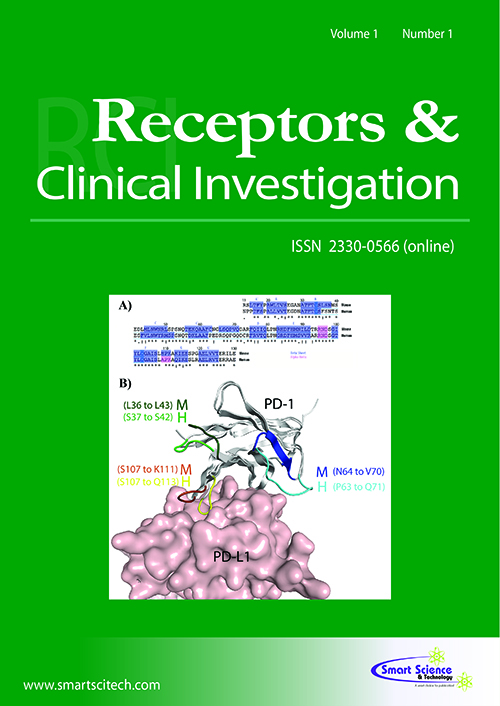Androgen receptor and intracrine androgen signaling in endometrial carcinomas
Abstract
The androgen receptor (AR) is known to play critical roles in the malignancy of prostate cancer as well as the management of male reproductive organs. Endometrial carcinoma, one of the major female cancers, is considered an androgen-related cancer. However, the importance of androgen signaling through its receptor in endometrial carcinomas has not yet been clarified. We recently demonstrated the significance of androgen signaling and intracrine dihydrotestosterone (DHT) in endometrial carcinomas as follows: 1) A positive status of androgen receptor (AR) was significantly associated with high rates of progression-free survival (PFS), but not with endometrial cancer-specific survival (ECSS) in endometrial carcinoma patients; 2) The potent androgen DHT was synthesized from testosterone by 5?-reductase in endometrial carcinoma tissues; and 3) endometrial carcinoma patients that were AR/5?-reductase type 1 double-negative had significantly worse PFS and ECSS. These findings suggest that androgen signaling exerts anti-cancer effects through the intratumoral DHT-AR pathway in endometrial carcinomas. In this highlight article, we describe androgen signaling in endometrial carcinomas, focusing mainly on our recent study entitled “The role of 5?-reductase type 1 associated with intratumoral dihydrotestosterone concentrations in human endometrial carcinoma” and discuss the findings of some previous related studies.











